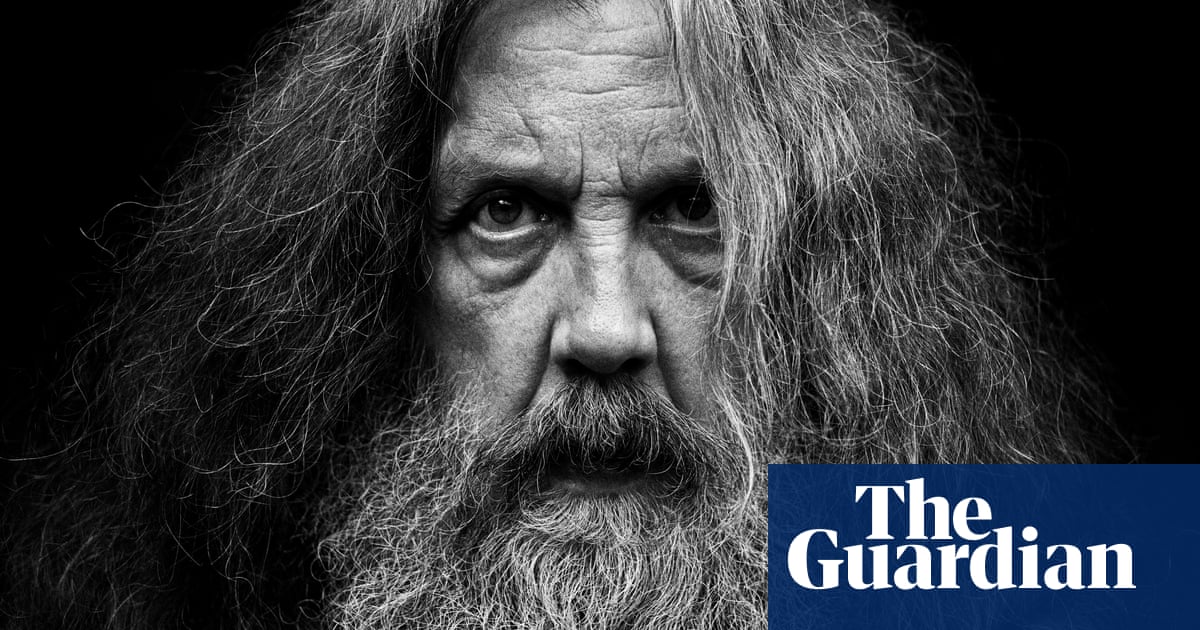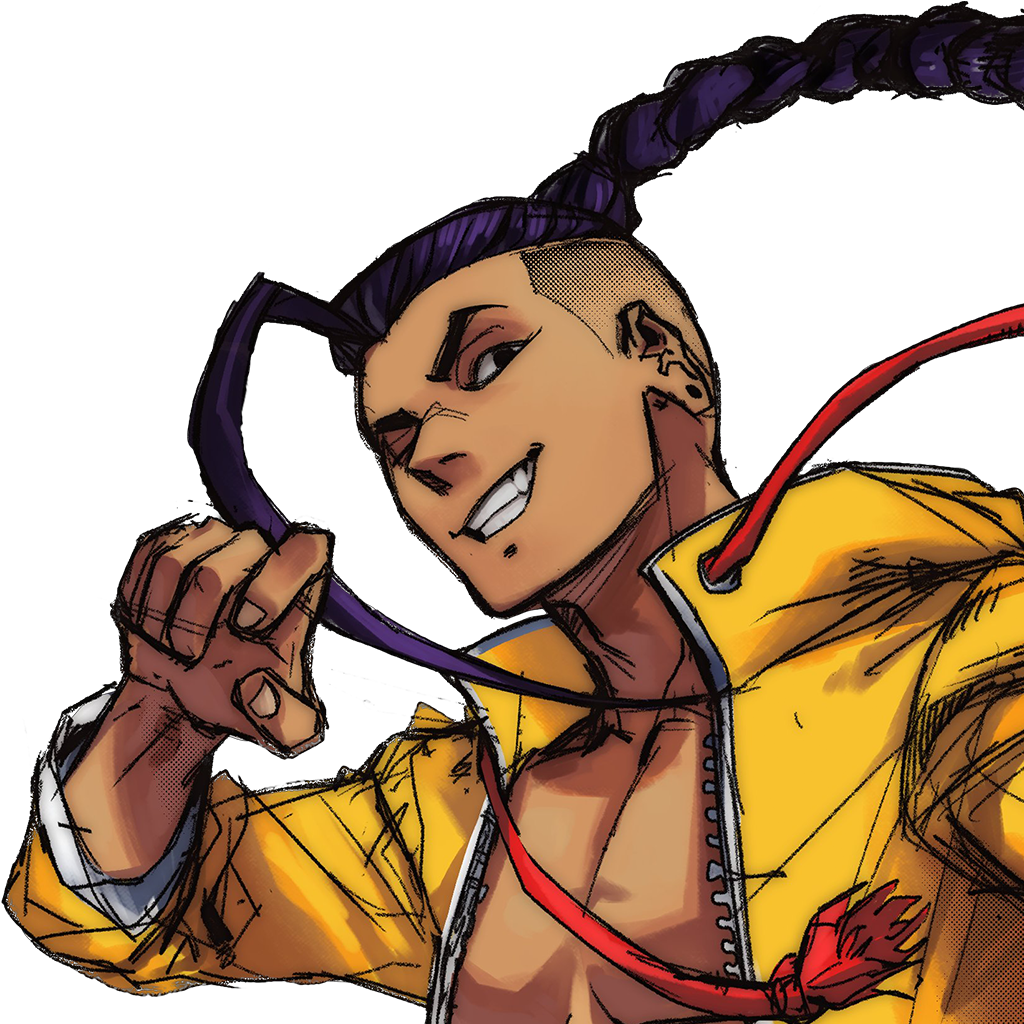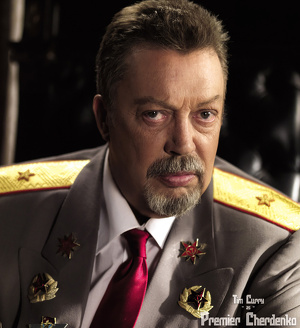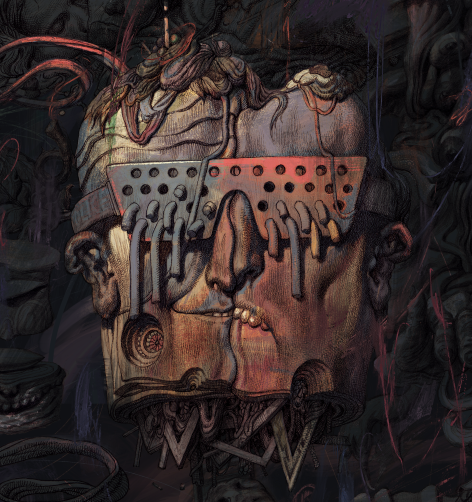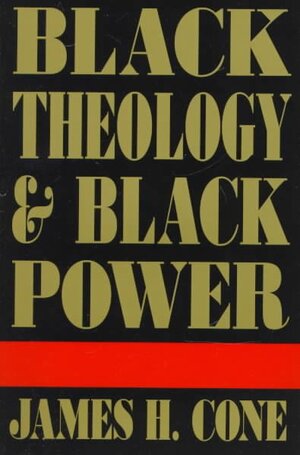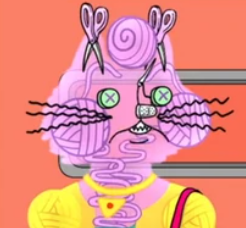And he now looks with dismay on the way the superhero genre in which he once worked has eaten the culture. “Hundreds of thousands of adults [are] lining up to see characters and situations that had been created to entertain the 12-year-old boys – and it was always boys – of 50 years ago. I didn’t really think that superheroes were adult fare. I think that this was a misunderstanding born of what happened in the 1980s – to which I must put my hand up to a considerable share of the blame, though it was not intentional – when things like Watchmen were first appearing. There were an awful lot of headlines saying ‘Comics Have Grown Up’. I tend to think that, no, comics hadn’t grown up. There were a few titles that were more adult than people were used to. But the majority of comics titles were pretty much the same as they’d ever been. It wasn’t comics growing up. I think it was more comics meeting the emotional age of the audience coming the other way.”
He thinks that’s not just infantile but dangerous. “I said round about 2011 that I thought that it had serious and worrying implications for the future if millions of adults were queueing up to see Batman movies. Because that kind of infantilisation – that urge towards simpler times, simpler realities – that can very often be a precursor to fascism.” He points out that when Trump was elected in 2016, and “when we ourselves took a bit of a strange detour in our politics”, many of the biggest films were superhero movies.
Superman, the creation of working-class Jewish kids, was originally “very much a New Deal American*” – but he got co-opted, just as “the early spiky, anarchic Mickey Mouse was very quickly modified into a suburbanite who wears short-sleeve shirts and has two nephews”. Moore is at least cautiously cheered that another of his creations, the Guy Fawkes mask drawn by David Lloyd for V for Vendetta, has been adopted as a symbol of resistance: “I can’t endorse everything that people who take that mask as an icon might do in the future, of course. But I’m heartened to see that it has been adopted by protest movements so widely across the world. Because we do need protest movements now, probably more than we’ve ever done before.”
His caution towards the cultural turn we’ve taken extends to the digital realm. He shuns new tech to the extent that we speak down a landline, so I can’t see the lavishly bearded face from which his gentle Northampton burr issues. “When the internet first became a thing,” he says, “I made the decision that this doesn’t sound like anything that I need. I had a feeling that there might be another shoe to drop – and regarding this technology, as it turned out, there was an Imelda Marcos wardrobe full of shoes to drop. I felt that if society was going to morph into a massive social experiment, then it might be a good idea if there was somebody outside the petri dish.” He makes do, instead, with an internet-savvy assistant: “He can bring me pornography, cute pictures of cats and abusive messages from people.”
Moore not only shuns the internet but, which will seem still more eccentric to some, makes no bones about being a practising magician – which he dates with peculiar precision to November 1993. Drunk in a bikers’ pub in Northampton on his 40th birthday, he announced “quite forcefully” he was going to be a magician. “The next morning when I woke up I thought: ‘Oh dear, I’m going to have to do that now, aren’t I?’ I didn’t know what it meant to become a magician. But I thought there was a certain power in having made the declaration.” His magical experiments came to chime with a worldview evident throughout his work. Human perception (as cognitive science affirms) is partial: we see the world as it’s adaptively useful to see it, not as it truly is.
Magic, for Moore, is of a piece with his art and politics, and he says the three would have been coterminous in shamanic prehistory: “All of the culture around us that I can see looks to me very much like the dismembered body of magic.” Since the origins of civilisation, he says, we’ve striven to understand the world better by breaking it down into manageable bits. “That process of fragmentation and analysis and reduction has probably gone as far as it can, in that we have fragmented societies, we have fragmented philosophies. Individually, we have fragmented psychologies […] We could do worse as a species than to try and put that dismembered corpse back together.”
One of his early-00s comics, Promethea, was an effort to communicate that worldview. “I’ve disowned it now [another casualty of his falling out with DC], but it was, and is, a very good work. I think it does give a taste or a sense of the magical experience – at least some of the issues, just in the neural connectivity that some bits of Promethea suggest. I think they can put you into a slightly altered state. Which, I think, all art should do. I’m probably a pretty much unreconstructed member of the psychedelic left from 1970, where the agenda was just: let’s drop LSD in the reservoirs and thus enlighten everybody. Luckily, before I could implement that, I did grow the fuck up and realise [it] would be a terrible idea. But nevertheless the idea of enlightening people as a way of changing society probably remained my strongest directive.”
He’s now serving that directive with a renewed enthusiasm. “I’m really enjoying just writing prose fiction,” he says. “Because, in some ways, to me, that seems the purest medium. You’ve got 26 characters, and a peppering of punctuation. With that, you can describe the entire conceivable universe.”
I'm not sure how much of a "change of heart" it really even is TBH. At the very least he's been preaching this for decades already and even going back to Watchmen you can see a lot of his concerns and anxieties around the genre reflected in it.
One thing he's famously said is that he believes the first American Superhero film is Birth of a Nation, and TBH the first time I read that quote it chilled me to my core. Exceptions (maybe) like golden age superman and his exploits against corrupt factory operators or coal mine owners not withstanding: the foundational idea behind an overwhelming majority of superheroes is "masked crime-fighter". When you actually really pause to think about that in the larger American context and the way they treat crime as something to be punched rather than as a byproduct of massive economic inequality as well as the foundational history of white supremacy.....yeah...its a really bad fucking look actually. That doesn't even get into the way most superheroes throughout all their history all the way to today have been vehicles to do PR and marketing for the United States military and the police.
NGL....I do still enjoy capeshit but...the past few years have started to make me really uncomfortable about it.
yep, came here to basically say this. Moore fuckin hates capeshit, haha. Always has.
He points out that when Trump was elected in 2016, and “when we ourselves took a bit of a strange detour in our politics”, many of the biggest films were superhero movies.
Batman had it's peak amount of reverence in 2008 when Obummer was elected. This is why shit like this gets picked up in The Guardian. Trump wasn't a strange detour. 2016 wasn't a aberration.
There's no reflection of the role of liberals in all this. The decline of pop culture and worship of capeshit doesn't fall at the feet of Trumpers or even right wingers. Yes wanting a big strong man to take the law into his own hands and beat up poor criminals in the name of property is fascists, but that's also an opinion shared by liberals. Even well-intentioned libs who fancy themselves super progressive.
People aren't becoming more infantile and therefore the capeshit is rising to meet them either. It's a bad business strategy to have a generation drop your product at 16. You need to keep them on the line and keep them buying your shit into their entire adult life. The mainstreaming of capeshit is an intentional maneuver by media and toy companies. It's not some sudden lack of appreciation for art or people just being big dumb stupid heads who can't grow up.
Moore probably knows there's not much space between liberals and Trump, but yeah the Guardian isn't going to print that.
You're right about media simply revolving around money rather than some spontaneous lack of sophisticated art.
We're not immune to it either, look at the way we treat John Brown and Lyudmila Pavlichenko.
How is this a surprising change of heart lol Alan Moore has essentially always hated comic book fans.
Not quite all the way there myself but always good to see what our favourite anarcho-mage has to say
Honestly, I find this shit kinda dumb and non-materialist.
The only link between Marvel movies and fascism is that the same consolidation of bourgeois power allows for both.
The militia movement, the great recession, the rise of anti-LGBTQ "groomer" propaganda and ties between mainstream conservatism and fascist groups - those are things that actually have to do with the rise of fascism in the west.
This. I think that the rise of Marvel and Superhero culture in general is in many ways best understood as a response to 9/11.
X-men in the year 2000 is often credited with reinvigorating the interest in the genre with studios snatching up IP rights, but it was Spider-man in 2002 where shit REALLY exploded and you saw the studios rushing to churn this shit out. People were fucking scared shitless and they found comfort in the idea of how things could have been different in the fantasy world where supes are running amok. I was a bit surprised the tentpole superhero film survived covid but its not shocking superheroes themselves have only gotten more pervasive when you realize how everything is going to shit everywhere. Just look at that whole twitter thread that was posted about how the avengers would respond to the Russia Ukraine war.
Didn’t Spider-Man have an infamous issue where he could not, in fact, stop the WTC bombing because how would that even work, and it’s so harrowing that even his villains take a day off to mourn?
He did!!! Keep in mind nobody actually read comics outside of hardcore nerds so the cultural impact of that whole thing was minimal.
But man oh man has it gotten so stupid in hindsight. It had fucking magneto and Dr. Doom literally crying at the horror as if they themselves wouldn't have obviously done the exact same thing, lol.
It's really not, though. There was a really good episode of TrueAnon that explains the phenomenon of infantilization, regression and the social engineering that big media is getting up to. They were interviewing a Marxist media theorist. The narcissism that's inherent in this type of media eventually gives way to a generalized sociopathy that fascism needs to thrive. You probably think it's silly because you exist outside it, but this is reality for a large portion of US men.
The narcissism that’s inherent in this type of media eventually gives way to a generalized sociopathy that fascism needs to thrive.
Do you have a link to the episode? Because this sounds really fascinating.
I do. Episode 244: Survival of the Grimmest. The writer they interview is Douglas Rushkoff, the person who relayed the story about one of the tech billionaires (almost definitely Thiel) who asked him how to ensure the loyalty of his security force after Thiel’s money was worthless.
Listen to UNLOCKED: Episode 244: Survival Of The Grimmest by TrueAnon on #SoundCloud https://on.soundcloud.com/iYH9e
You got a timestamp for when the interview starts? I got work today & can't necessarily sit through bants.
The narcissism to sociopathy pipeline is discussed starting at around 31 minutes. FYI, the guy they're interviewing sounds a little like Brace, so it's a bit tough to tell who's whom.
Edit: you actually have to go to the beginning of the interview at around 12 minutes to get the context where he's talking about the regression and infantalism.
IDK, I feel badly about the direction that the conversation in that interview is going.
Like, they talk a lot about how, in the way that they're talking about it, "Narcississm isn't about having a big opinion about yourself, it's about being fundamentally unable to connect to other people."; and they end up connecting that back to & ultimately being the root cause of their personal moral failure. I guess, the argument almost feels like "Because they have some fundamental underlying disconnect between them & other people, they essentially have less of a soul than other people." And like, I guess I can see how that disconnect might explain the specific ways in which they use their wealth for fucked-up purposes, but the argument itself is still like really fuckin hurtful to me personally I guess, and like ultimately fails to account for the fact that the only reason they pose a danger to anybody is because of their class position & the way that society is constructed to just let anybody who has the money to do whatever they feel like do whatever they feel like.
Like I remember somebody at some point linking a documentary about transwomen's experiences in modern China (I don't have the link for it I'm afraid, I don't remember what it was), and the leading subject of that film was like this elderly woman who had only finally decided to transition in like her late-40's to 50's after her mother passed away. And the whole deal with her is that she lives in squalor, in like a 1-room apartment paid for off a state-issued stipend, filled with trash & her only companionship is this blow-up doll, and she spends a large proportion of her day getting cussed out by random passersby over how she presents herself. I don't have (I don't think I have) the same kind of relationship relationship to my "birth-gender" that she does, but I do honestly kind of identify with what she's going through, in that I see that same life as probably being the best-case scenario for where I'm going to end up in my old-age because I have Autsim. Which is defined by exactly the things that Brace, Liz, & Co. are saying are what makes todays Tech-CEOs somehow more insidious or evil than the robber-barons of earlier centuries.
And frankly the fact that this does seem to be (at least it is my sense, or my feeling of things, that it is) a really pervasive position among contemporary "Left-ish" discourse (basically most anyone who's job it is to have an opinion on the internet, is what I'm talking about here). That being burdened with the inability, or a lessened ability to just naturally connect to others as just a basic function of existing in the world; that this makes one particularly & specifically socially toxic & personally dangerous. It doesn't make me feel like my social opportunities, or my life circumstances would actually be much better, or much different in whatever kind of society everybody else says they're trying to build.
IDK, this is just something I've been feeling really strongly lately; and it's been very difficult to articulate.
Thanks for sharing that. I'm sorry the interview made you feel that way. Obviously I don't know any of the people on the show, but I don't think their intent was to say that neurodivergent people are inherently evil.
My take, as someone who isnt ND so take it with a grain of salt, is that many ND people that I've known don't have an issue interacting with others socially, per se, but a decreased tolerance for social pantomime. I think that if you could exist in a society where people behaved with more authenticity, you might feel more comfortable with social interaction. I feel like one of the reasons we've seen such an increase in diagnosed ND in the digital age is because social media has increased the level of social pantomime significantly. I hope we can create a better world for all of us to live in and that you can find some community so you don't always feel so alone.
I do. Episode 244: Survival of the Grimmest. The writer they interview is Douglas Rushkoff, the person who relayed the story about one of the tech billionaires (almost definitely Thiel) who asked him how to ensure the loyalty of his security force after Thiel's money was worthless.
Listen to UNLOCKED: Episode 244: Survival Of The Grimmest by TrueAnon on #SoundCloud https://on.soundcloud.com/iYH9e
I guess the base and the superstructure are in dialectical interaction, no?
I've been saying this for a while now, capeshit is just US foreign policy dispensed to the masses as easily digestible "US good guys" against the evil villains across the world (mostly brown).
Moore has some weird takes, but his stance on capeshit was always based.
Do superhero movies portray a simpler reality than action movies generally do? Like Fast and Furious or something?
Disclaimer: I haven't watched many recent action movies
Fast & The Furious films are basically car-driving super heroes, really. Most American action films operate around the same principle of an unstoppable protagonist who's presented morally right in whatever they do and operate in defence of the superstructure.
Right. Worshipping capeshit can lead to fascism, worshipping capeshit creators, however....


